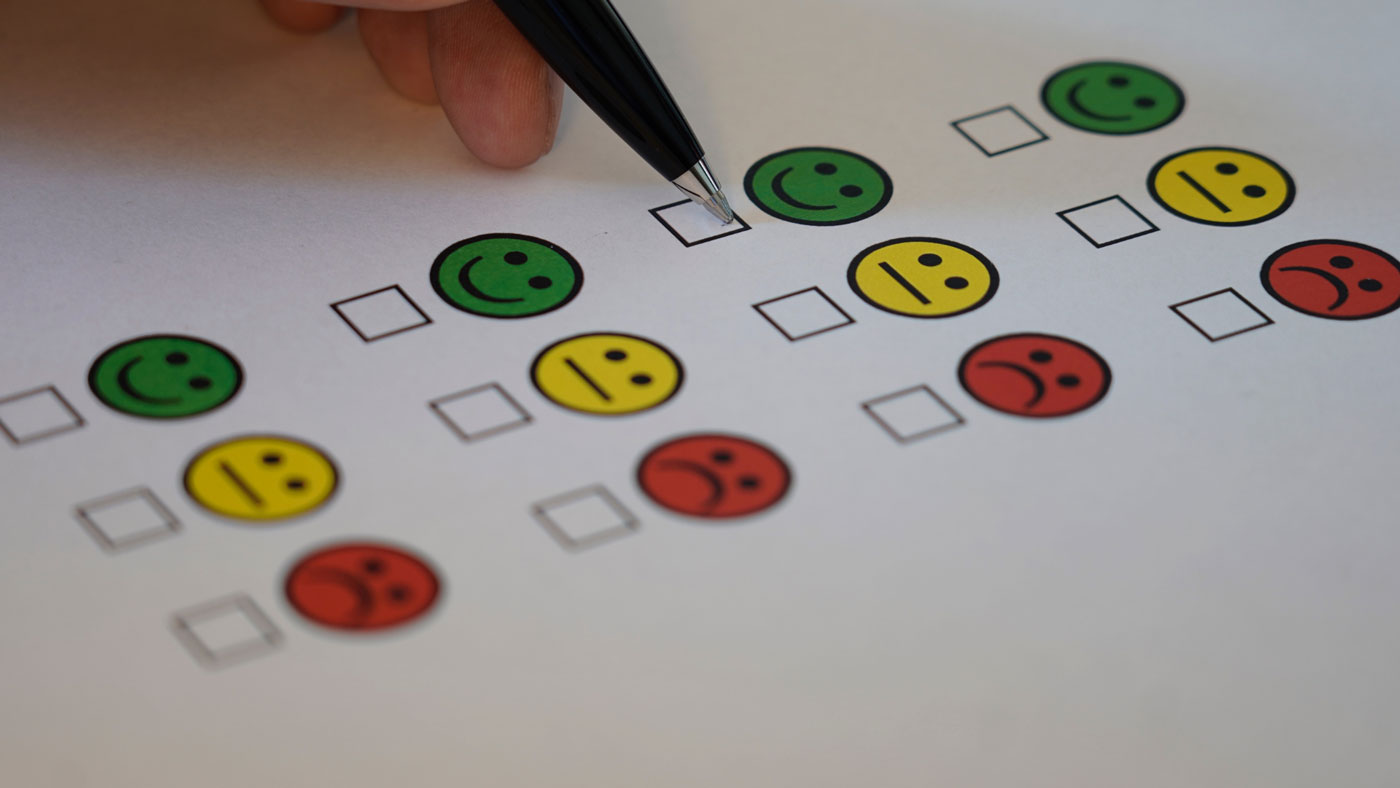
Table of Contents
Key Points
- Substance abuse evaluations are used to assess an individual’s level of drug or alcohol use.
- These evaluations can identify a substance use problem and inform treatment plans.
- Some evaluations can identify co-occurring disorders that may contribute to substance use.
- The court may require substance use evaluations for legal issues related to drugs or alcohol.
- Comprehensive substance use evaluations are used in rehabilitation facilities to develop tailored treatment plans.
If you find yourself in legal trouble involving drugs or alcohol – or you enter a substance abuse treatment program – you may be required to complete a substance abuse evaluation.
Naturally, this situation can be nerve-wracking, but you can ease the anxiety if you know what to expect from the experience. Find out more about undergoing a substance abuse evaluation, the different types, and why they’re important for creating individualized care programs.
What Is a Substance Abuse Evaluation?
A substance abuse evaluation, also known as a drug and alcohol evaluation, is an assessment of a person’s drug or alcohol use to determine if it’s a problem or addiction. It can also identify any existing conditions that may need dual diagnosis treatment.
Social Use
Social alcohol or drug use is extremely common. Many people can consume alcohol or drugs in moderation, and only on occasion, without suffering any adverse effects or negative impact to their day-to-day lives.
Abuse
Alcohol or drug abuse is also common. People may use alcohol or drugs regularly, but not to excess, without a significant impact to their lives. They may experience some consequences, such as problems in interpersonal relationships, legal issues, or health problems.
Dependence
Dependence on drugs or alcohol indicates the use of substances that continues even when significant problems have developed. Often, this includes physiological dependence, meaning the body has adjusted to the presence of drugs or alcohol. If the individual stops or cuts back, they may experience withdrawal symptoms that can be severe.
Once the substance abuse evaluation is completed and identified a drug or alcohol problem, a medical or mental health professional can determine the level of abuse and next steps. These evaluations are completely confidential and only used to assist with treatment options.
What to Expect at a Substance Abuse Evaluation
According to the Substance Abuse and Mental Health Services Administration (SAMHSA) outlines two steps for substance abuse evaluations:[1]
- Screening to evaluate the presence of a substance use problem.
- Assessment to define the nature of the problem, determine a diagnosis, and develop specific treatment recommendations.
The evaluation may be performed with a range of different medical and mental health professionals trained in assessing addiction, including:
- Social workers
- Therapists
- Counselors
- Psychologists
- Psychiatrists
- Doctors
- Nurses
Using written assessments and interviews, the staff will inquire about:
- Demographics
- Family history
- Social history
- Occupational history
- Legal history
- Medical history
- Mental health history
- Substance use history and patterns
Substance Abuse Screening
The substance abuse screening is part of the preliminary evaluation that helps staff determine if they need to conduct a more thorough evaluation. This is an important aspect of the experience to provide support and care for at-risk individuals.
Several screening tools may be used, including:
CAGE Questionnaire
This is a widely used questionnaire that includes four questions with short answers. The CAGE Questionnaire relies on an individual’s self-awareness, so it needs to be included as part of a comprehensive evaluation.[2]
Alcohol Use Inventory (AUI)
This is a self-administered screening tool for individuals who believe they have an issue with alcohol abuse. AUI is useful because it acknowledges each individual’s perspectives about their own lifestyle choices, risks, and consequences of drinking alcohol.[3]
Substance Abuse Subtle Screening Inventory (SASSI)
The SASSI is a simple evaluation that helps staff determine if substance use extends beyond social drinking or recreational drug use, how serious the use is, and whether the individual is ready and willing to take steps toward recovery.
Some screening tests are available to complete on your own or with the help of loved ones, but they may not be effective if they’re not administered and reviewed by a professional.
Substance Abuse Assessment
A substance abuse assessment is more thorough than screening tools and is used to find evidence that supports or refutes a diagnosable drug or alcohol addiction.
This assessment is performed following a screening if the results indicate that a deeper investigation is needed. It includes more in-depth questions to get a clear picture of substance use and eliminate any gaps in the individual’s perception.
There are two methods used for assessments:
- A structured interview uses structured questions that don’t require a professional with advanced training in substance abuse. Because of this, the results can be limited.
- A semi-structured interview allows more skilled professionals to supplement the structured questions with impromptu questions based on their professional experience. This allows for a more thorough understanding of the severity of an individual’s substance abuse.
In some cases, you may be asked to permit friends or family to report their experiences and observations to provide another perspective on your substance use. This information is helpful for getting an objective view of your substance use and providing a tailored treatment plan.
Evaluations for Treatment Facilities
If you enter into a substance use treatment program, you will undergo a substance abuse evaluation. This helps your care team understand your specific history and challenges to create a tailored treatment plan.
Dual diagnosis, or co-occurring disorders, can make substance abuse disorders worse and more difficult to treat. Mental health disorders like depression and anxiety can also be identified during a substance abuse evaluation.
Court-Ordered Evaluations

A judge may require a court-ordered evaluation if you’re charged with:
- Driving under the influence (DUI)
- Minor in possession
- Possession of drugs or alcohol
- Disorderly conduct
- Public intoxication
- Using a fake ID
You may need additional documents for these evaluations, which could be handled by your attorney. These include:
- The results of your NEEDS Assessment if you went into a DUI Alcohol or Drug Use Risk Reduction Program (RRP)
- A report from the DMV detailing your driving history over a certain number of years
- A copy of any criminal history or arrests
- A copy of your arrest report
The evaluation typically takes between 60 and 90 minutes. These interviews are in-depth and may include questions on the documentation you provide.
These evaluations are part of the sentencing guidelines for substance-related violations, but they also determine if there is an ongoing condition like substance use disorder (SUD). In some cases, you may be required to enter into treatment programs – even if the evaluation doesn’t show enough evidence of a problem.
Some of these may include:
- Alcoholics Anonymous (AA) or Narcotics Anonymous (NA) meetings
- Random drug or alcohol testing
- Counseling sessions
- Education classes
- Inpatient or outpatient treatment programs
Undergoing Substance Abuse Evaluations
Substance abuse evaluations can be stressful or embarrassing, but they’re an important part of getting on the road to recovery. Without honest, detailed answers, treatment professionals can’t develop a care plan that’s designed to help you succeed. The more you disclose, the more you can benefit from the process.
Are you or a loved one struggling with alcohol or drug abuse or addiction? Epiphany Wellness can help. Contact us to learn more about our comprehensive addiction treatment programs.
Frequently Asked Questions
Still have questions about substance abuse evaluations? Here are answers to the most common questions.
OCEAN RECOVERY EDITORIAL GUIDELINES
The internet contains a vast amount of misinformation, but when it comes to your health only peer reviewed, research centered data matters. At Ocean Recovery, all content published throughout our website has been rigorously medically reviewed by a doctorate level clinician, and cross checked for medical accuracy. Our editorial process helps our readers trust that the information they are consuming is factual and based upon scientific data. Your health is our top priority, find out more about how we safeguard the integrity of information on our website. Read More About Our Process




